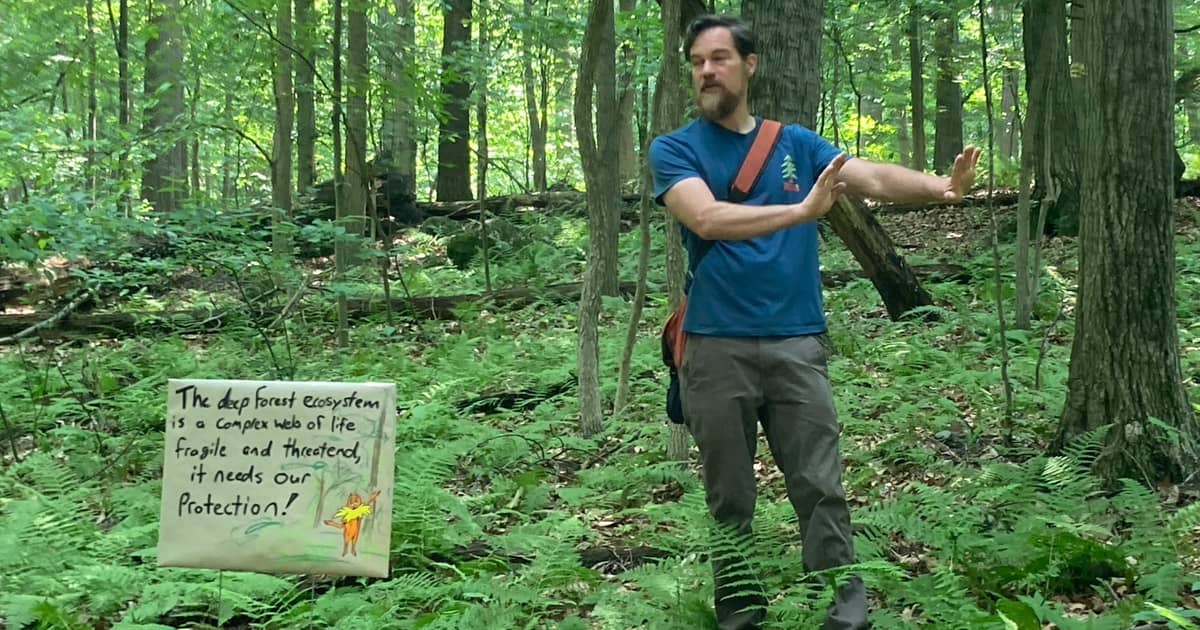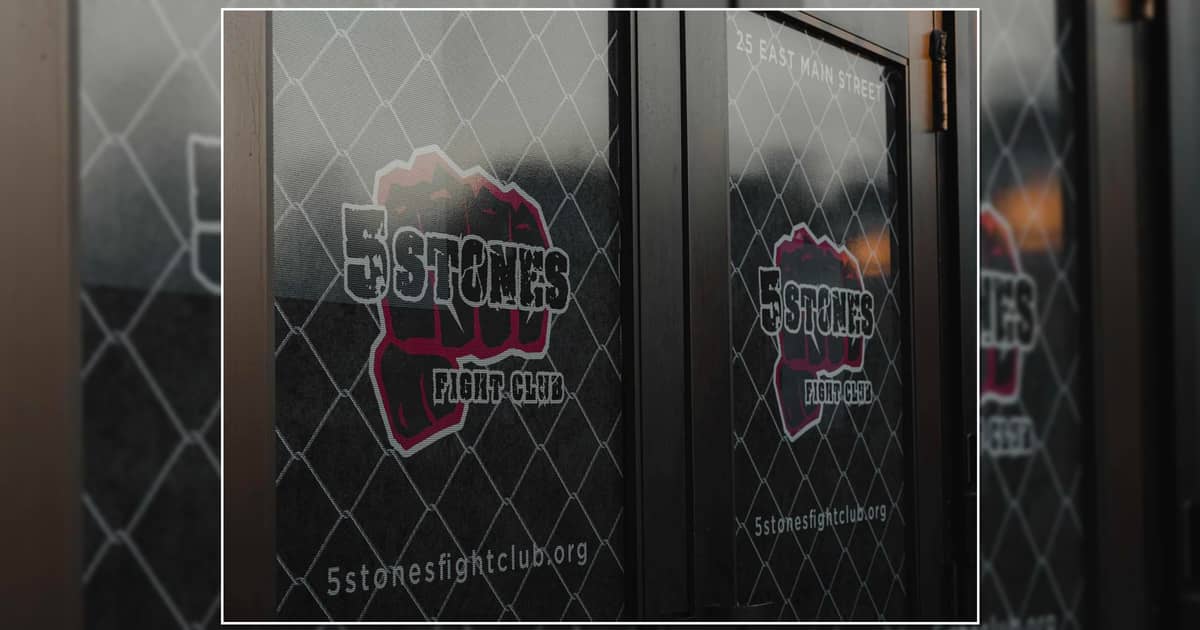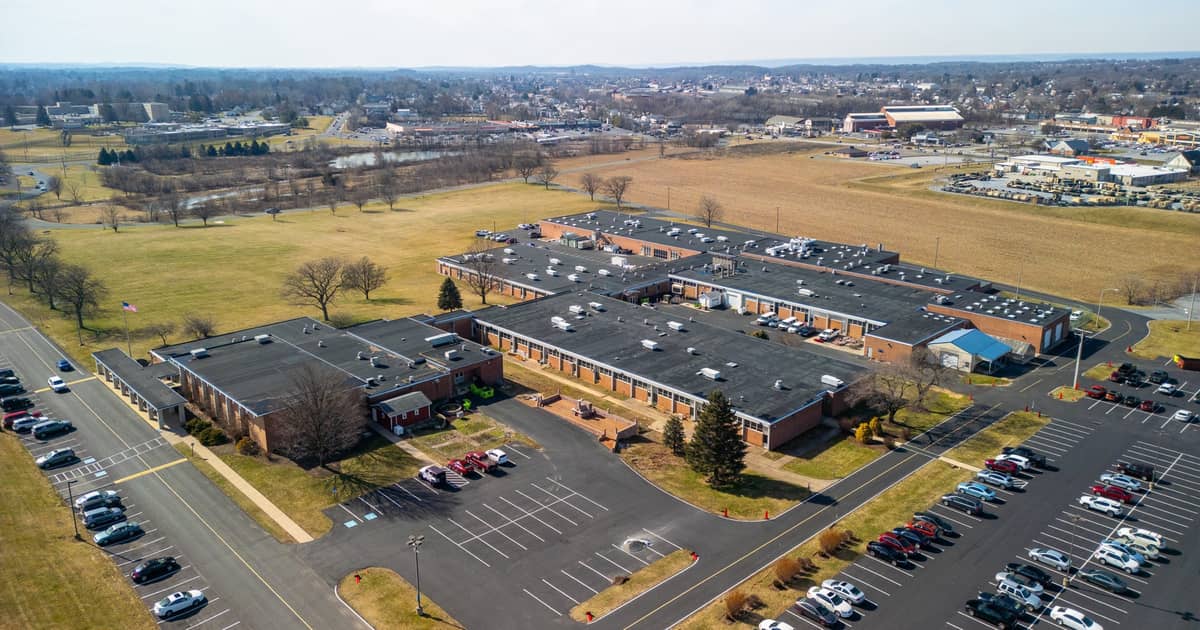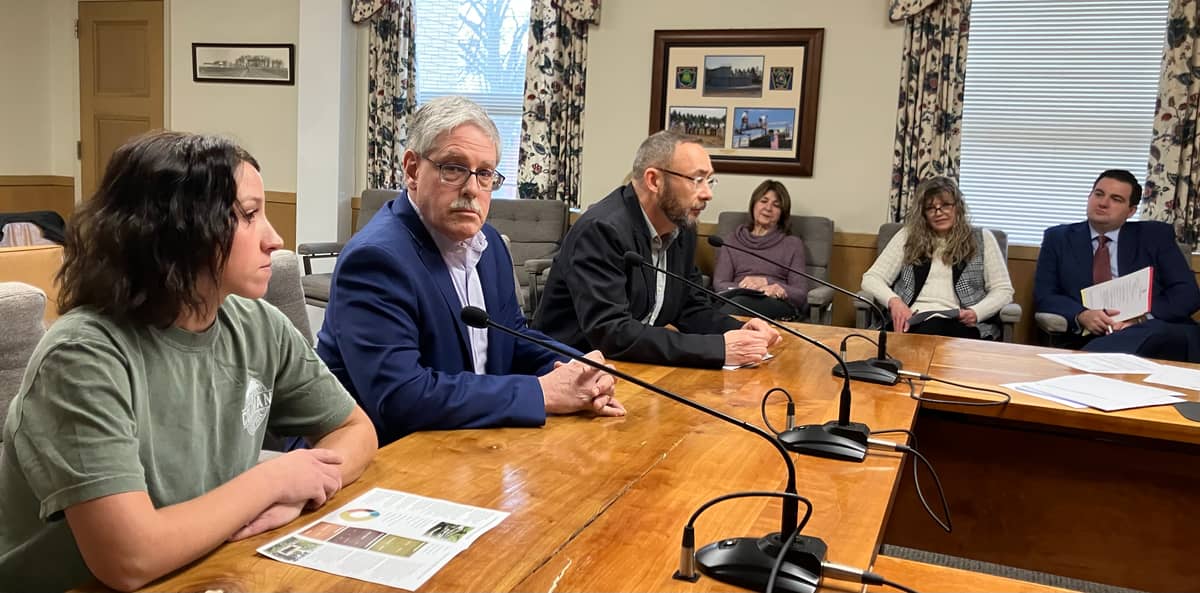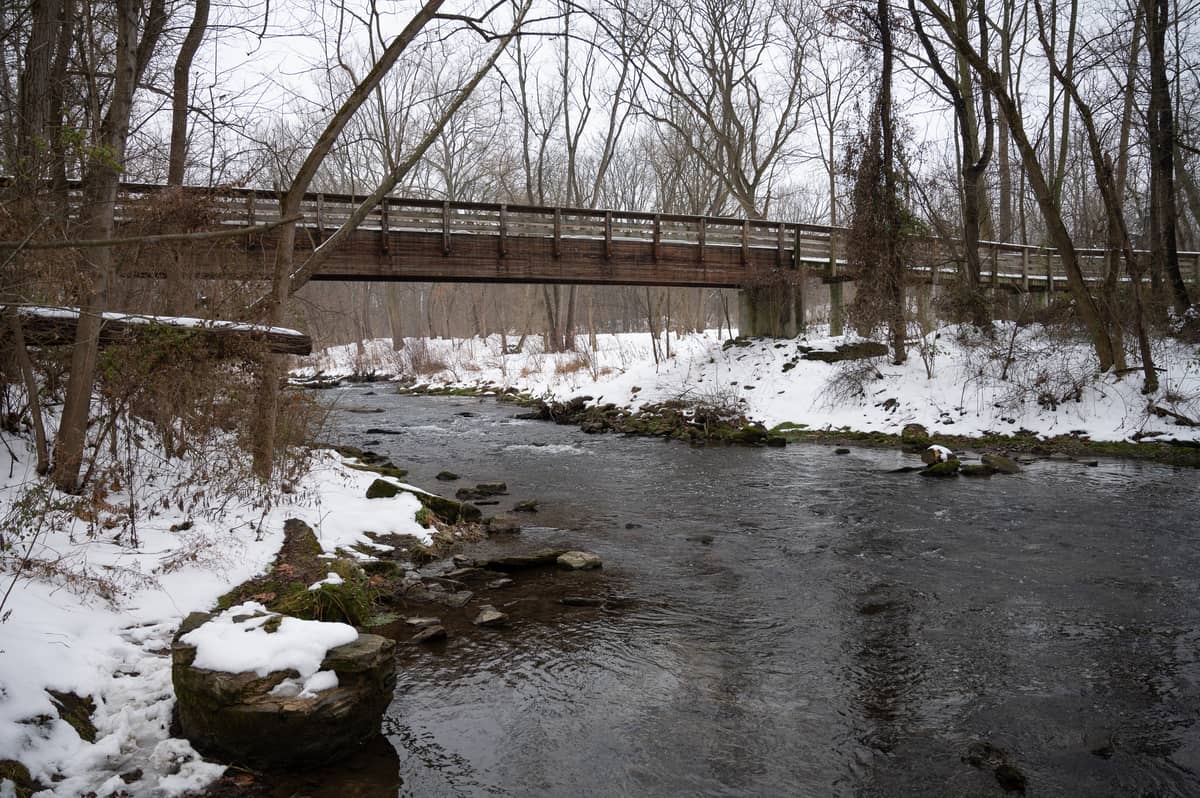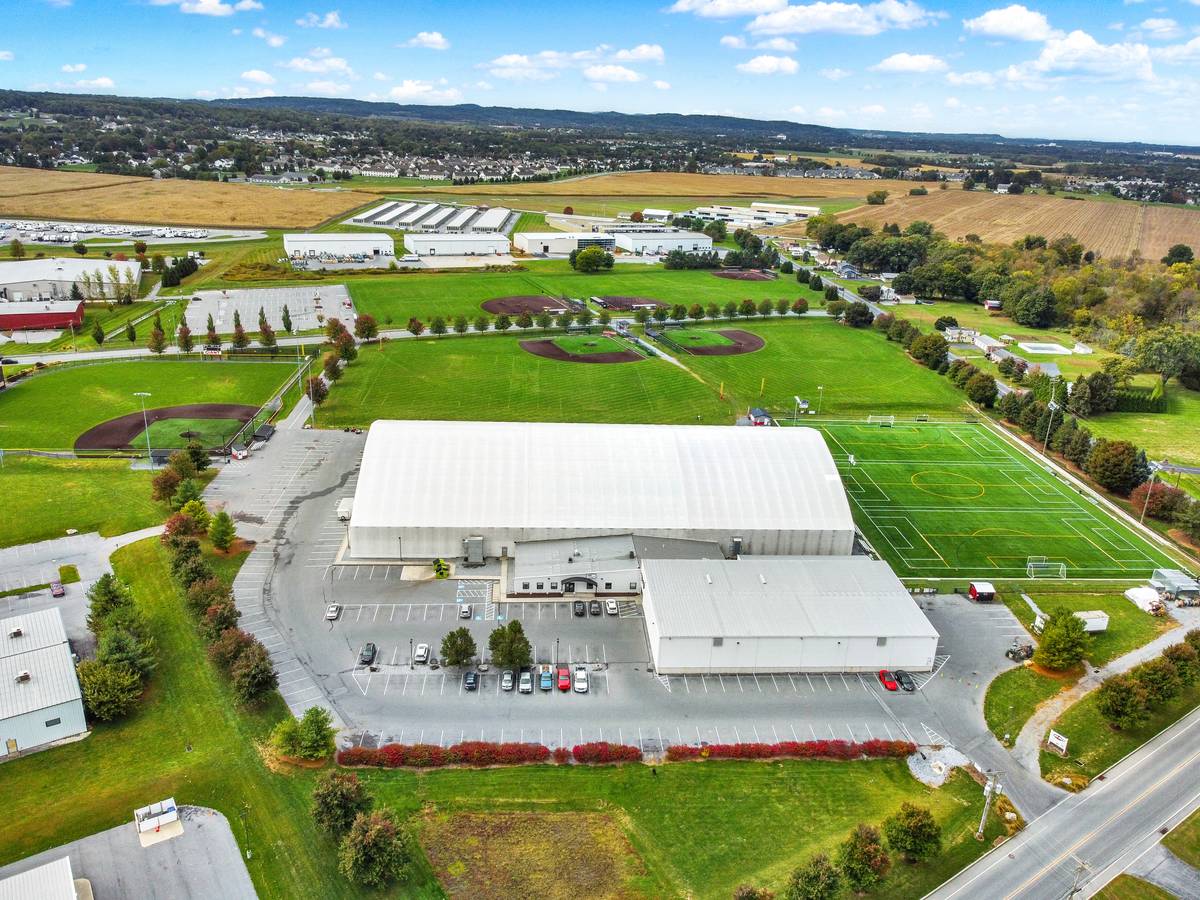Tina Clarkson has fond memories of hiking with her friends to the Governor Dick Tower as a young girl.
Read More: The sad story of the six-level “Tower House” that once stood atop Mt. Gretna’s Governor Dick
She said the appearance of the park then versus now has been drastically altered by the forest management practices of the park’s board of directors.
“I think a lot of people have memories of Governor Dick, and they think, ‘Oh yeah, I remember going there as a kid,’ and now, when you come up here and see what it looks like, it’s total devastation,” said Clarkson. “Most members who live in the community don’t get up here, so they don’t know what’s going on because they don’t see it.”
Clarkson was one of about 80 local residents who attended on Saturday, June 17, an awareness event billed as “Hike with Mike.” Community members were invited to attend a Friends of Governor Dick-sponsored hike with Lebanon County Commissioner Mike Kuhn to view the recent harvests that occurred within the forest at Governor Dick Park.
The grassroots organization wanted to show Kuhn and local residents why they oppose the current management practices of Governor Dick’s board of directors, which is under the authority of the Lebanon County Commissioners.
Read More: Environmental group airs concerns about Gov. Dick Park to county commissioners
Clarkson, a Lebanon city native and resident of Mount Gretna Heights, was a tour organizer who worked to raise community awareness – which included senior citizens, adults, children, and a variety of four-legged friends who came along for the two-hour event.
“It (harvesting) needs to stop,” said Clarkson about why she’s involved with the Friends group. “I understand that there is proper forestry management, but I feel this is going above and beyond, and once it is gone, it is gone forever.”
Ryan Fretz, who has been acting as the spokesperson for the Friends group, offered some brief opening remarks at the Mt. Gretna Heights Community Building, and then the tour departed for its first stop, which was the site of the winter 2020/spring 2021 harvest.
Standing in front of a fenced-in area at that location, Fretz told the hikers that all plant life is killed to a certain height so that the tree seedlings that are planted can receive the sunlight needed to grow.
“They kill everything from the ground up to 20 feet and then shear down the trees that have a circumference of less than six inches,” said Fretz. “Those smaller trees, a majority of them, get mowed down since they would cast a shadow on the seedlings, so they leave about 10 mature trees per acre to reseed the forest, and then they plant seedlings.”
Sharing with the group that although he does not have a degree in forestry management, Fretz said he believes this methodology, while acceptable for commercial harvest standards, is detrimental to the health and welfare of the overall ecosystem.
“I think they are failing by their own merits,” said Fretz. “The invasive plants are just spilling in and replacing our native plants. The forest is more than just trees. There’s a complex web of life that forms the ecosystem here, and it just doesn’t all come pouring back in.”
Fretz highlighted the fencing that was placed to prevent deer from damaging the young trees, which are a preferred part of the ravenous herbivore’s diet. Fretz said deer overpopulation is a pervasive problem in the park.
“We have way too many deer here, and the deer are not allowing the forest to regenerate,” said Fretz. “This is a problem all up and down the eastern United States. Our deer population is out of control, they eat too many small trees, and if we don’t do something about it, we won’t have mature trees to sustain us into the future.”
Barry Rose, certified forester of Forest Regeneration Services Inc., agreed with Fretz that deer are detrimental to the forest’s health, adding there are no easy solutions to controlling their population. Rose’s company manages the park on behalf of the board of directors.
“There’s no doubt about it,” said Rose. “The deer problem is the number one issue facing the park. The logistics of a hunt, though, are a nightmare. People wonder why someone else got a permit, and they didn’t. And having sharpshooters come in to kill the deer is very expensive.”
Read More: Man with a plan: Governor Dick Park forester highlights regeneration efforts
Barry’s wife, Linda, said it’d been years since they had last checked, but it used to cost $400 per deer that was culled, as well as other fees accessed by companies that offer the service. (A quick Internet search indicated that professional culling service providers charge between $700 and $1,000 per deer killed as part of a controlled hunt.)
Fretz also cited invasive plants that take over after a harvest as negatively impacting the forest ecosystem. “Wherever the forest is disturbed, we have invasive plants, and this problem is as much of a threat to this ecosystem as the deer are to the baby trees,” added Fretz.
At the first planned stop, Commissioner Kuhn thanked the organizers for inviting him to learn more about what he says is an asset to the Lebanon Valley. Kuhn expressed similar memories of visiting the park as a teen and then later as an adult who hiked the woods with his children.
“I’m here to listen and to learn,” said Kuhn. “My knowledge and experience with Governor Dick is probably hiking up there a dozen or so times in my high school years with my buddies and then when my kids were that age, 20 years ago or so.”
As a commissioner, Kuhn has had more reasons lately to return to the park, given the concerns of the Friends group.

“I’ve been up a few more times in the last year or so, I’ve learned a lot. Ryan was one of the first people to reach out to me, and that was the beginning of my new education on this, and that’s what my job is about. I need to learn to (be able to) make good decisions, and so I am here to learn more,” said Kuhn.
Concerning the deer issue, Fretz believes instead of fencing off 40 or more acres to allow regeneration, smaller patches should be constructed to better monitor what occurs within the fences. About half of the attendees raised their hands when Fretz asked how many people had seen deer inside the fences while hiking within the park.
“One alternative is smaller fence sections to be monitored more easily,” said Fretz. “If you have an enclosure of around 40 acres and any tree branches come down on it, it compromises the enclosure. Last winter, there were three huge deers within that enclosure, and according to the forester, they wiped out almost all of the seedlings they planted the year prior. If we put smaller enclosures, each one exists independently of the others.”
Rose told LebTown that a tree damaged a section of fencing and that the deer were removed from the fenced-in area with a controlled hike that pushed them towards a section where the fence had been removed to allow their escape.
One hike participant said she’s lived in forests all of her life in different locales and that those parks had controlled hunts to cull the herd. Fretz said a hunt is problematic because Clarence Schock, who owned and deeded the land to remain a forested playground in perpetuity, opposed hunting.
“Clarence Schock gave us an amazing gift, and one thing he put into his deed is that he did not want hunting in the park,” said Fretz. “He didn’t want tobacco, either, and a couple of other things, so that has limited the hunt. That has happened before – where they’ve had a sanctioned hunt – but they’re hesitant to open this up to hunting.”
Rose said there were two hunts held over several days in consecutive years in the late 2000s. In the first year, the return on investment in that five-day cull dwindled quickly. The second year of the hunt, which lasted only three days, foul weather on the first day led to few deer being harvested.
“There were 80 deer killed the first day the first year, but only 40 on the second day,” said Rose, who added he believes the two hunts occurred around 2008 and 2009. “By days four and five, no deer were shot.”
Several more stops along the hike included one by a wellhead that local resident Jennifer Besse said could be impacted by the herbicide that’s used to control the invasive plants. She told Commissioner Kuhn that about 75 units are on that well and that water pumps at a rate of about 45 gallons per minute.
“It’s a good well, a well that’s going to be around for a long time,” said Besse. “We’re concerned about any sort of spraying of pesticides within here. We’re especially concerned about it right now because, as of last Thursday, we’re now in a drought watch in Pennsylvania.”
Rose told LebTown that herbicide spraying in that area occurred on a parallel plane to the well and well outside the safety parameters established by the state Department of Environmental Protection. He added that Roundup, the herbicide that’s used to control the invasive species, also clings to whatever it touches, meaning it doesn’t permeate into the soil.
“We had a DEP official come out here and test the wells, and he found no indication of any issues with those wells,” added Rose, who noted the wells are located between 200 and 250 feet below the ground surface.
Although a majority of the hikers ended their participation before the trail went up precipitously towards the summit, about 20 individuals continued the journey to the peak, which ends at the base of the tower.
On the way to the summit, Fretz pointed out where underground cables were installed to power the security cameras that have been installed around the tower in an effort to control vandalism and other illegal activity at the peak.
“They got a $300,000 grant to stop the vandalism, stop the partying, but it hasn’t deterred it,” said Fretz. “For $300,000, how many times can you paint over the graffiti?”
The Governor Dick Tower is a popular outdoor destination for local residents and tourists alike since five counties can be viewed from the top of the concrete structure. Saturday was no different, with people of all ages enjoying the warm and sunny weather while hiking to the tower to enjoy the spectacular views.

Read More: Taking a fall foliage hike up to Governor Dick Observation Tower
Questions about this story? Suggestions for a future LebTown article? Reach our newsroom using this contact form and we’ll do our best to get back to you.

Join our community of local news champions.
Cancel anytime.
Monthly Subscription
🌟 Annual Subscription
- Still no paywall!
- Fewer ads
- Exclusive events and emails
- All monthly benefits
- Most popular option
- Make a bigger impact
Already a member? Log in here to hide these messages
Quality local news takes time and resources. While LebTown is free to read, we rely on reader support to sustain our in-depth coverage of Lebanon County. Become a monthly or annual member to help us expand our reporting, or support our work with a one-time contribution. Cancel anytime.
Editor’s note: This article was updated after publication to correct the name of Jennifer Besse. We sincerely regret the error.

